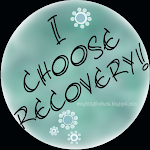
Affirmations are things we tell ourselves, either negative; I'm not worthy of love, or positive; I am a worthwhile person deserving of love. Using positive affirmations repeatedly throughout the day will bring about positive change. Repetitiveness is key.
Choose positive statements set in the "now." Example: I am a worthwhile person and I am a valuable asset to those around me, instead of, I will become a worthwhile person who will be a valuable asset to those around me. If your affirmation isn't in the now then it is kept constantly in the future tense. The more positive statements we tell ourselves as if they are a current reality of our present lives the more those statements become our reality, replacing prior negative statements. Our minds react and begin to bring about change.
Suggestions:
Work on a few affirmations at a time. Once you see change in those areas, add new affirmations.
Start your day by writing down some positive affirmations several times on a piece of paper and then do it again in the evening before retiring for the night. The process of writing them down actually speeds up the minds acceptance.
Write several affirmations on index cards, carry them with you, take them out and read them several times a day.
When you find yourself having a negative thought, stop and replace it with a positive affirmation.
Write down a favorite affirmation and tape it to a mirror that you look into every day. Read it each time you use that mirror. Say it out loud, several times. Seeing your reflection while you read/say aloud your affirmation can be powerful.
Place your written affirmations (one per piece of paper or index card) in other places where you will see them often.
Meditate on your affirmations. Take a few minutes to close your eyes and concentrate on what your affirmation means to you. Repeat an affirmation over and over again. Use it as your mantra.
Visualize your old, negative affirmation disappearing and the new one taking form and taking it's place. A couple of ways to do this: visualize the old one fading as the new one comes into focus, growing in clarity or see yourself throwing the old one into the trash (or burning it) and hugging the new one to yourself.
Some Affirmations for Eating Disorder Recovery:
"I will persist until I succeed."
"I deserve love and respect as I am."
Do you have a favorite affirmation(s), a favorite way in which you use affirmations, or a story of how affirmations have helped you? Please leave a comment and share them with us all.
For more Affirmations and the ones listed above:
Something Fishy
Poppink
Also see sidebar for:
Inspirational Recovery Quotes
Quotes of the Week
Resources
Tools
sources:
http://www.something-fishy.org/reach/affirmations.php
http://poppink.com/guide/edcgaffrm.html
http://www.self-help-and-self-development.com/affirmations.html
picture source: MrsMenopausal


 4
comments
4
comments



















